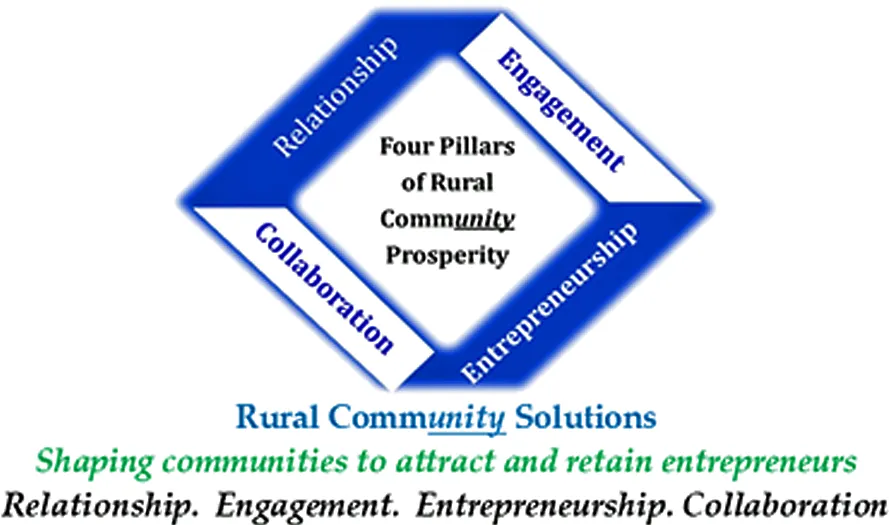Welcome to the
Be a Rural Community Builder's Newsletter
Rural Community Solutions' Mission: Shaping Small Rural Communities to attract and retain entrepreneurs. RCS does this by providing consulting, coaching, training, and merchandise processes that improve your community's culture.
These newsletters will give you the tools and resources that will take your community's support of entrepreneurs to the next level.
Unlock your small community's rural potential with our 35 years of expertise.
Get actionable strategies for community success in our newsletter.
Join us in spreading positivity and supporting local economies.
Discover new merchandise that will that will bring positive support to your rural community

What Does it Mean to be a Rural Community Builder
Being a Rural Community Builder means actively working to improve and strengthen rural communities. It involves taking on various roles and responsibilities to address the unique challenges faced by rural areas and promote their growth and well-being. Here are some key aspects of being a rural community builder:
Understanding the Community: A rural community builder strives to understand the needs, aspirations, and dynamics of the community they serve. They develop a deep understanding of the local culture, traditions, and values.
Facilitating Collaboration: Being a Collaborative Leader is more than just running meetings, it is how people work together. Building strong rural communities requires collaboration and partnership between different communities and stakeholders, including residents, local businesses, government agencies, nonprofit organizations, and educational institutions. As a community builder, you foster these relationships and facilitate dialogue, bringing people together to work towards common goals.
Identifying and Addressing Challenges: Rural areas often face specific challenges such as limited access to healthcare, education, transportation, and economic opportunities. A community builder identifies these challenges and works with relevant parties to develop and implement strategies to overcome them. This may involve advocating for resources, implementing infrastructure projects, or supporting local entrepreneurship.
Promoting Economic Development: Rural community builders play a crucial role in fostering economic development. They work to attract and retain entrepreneurs, support existing enterprises, and promote work-from-home and home-based businesses. This can involve providing resources, networking opportunities, training programs, and financial support to help local businesses thrive and create job opportunities.
Enhancing Infrastructure: Infrastructure development is vital for the growth and sustainability of rural communities. Community builders work towards improving infrastructure, such as transportation systems, broadband access, healthcare facilities, schools, and recreational spaces. They collaborate with government agencies, nonprofits, and other stakeholders to secure funding and implement infrastructure projects.
Supporting Community Engagement and Empowerment: Do you actively listen or do you just wait to talk? A strong sense of community and active citizen participation is essential for rural development. Community builders encourage community members to get involved, participate in decision-making processes, and take ownership of local initiatives. They organize community events, workshops, and training programs to empower individuals and strengthen community bonds.
Advocacy and Policy Development: Rural community builders often advocate for policies and legislation that benefit rural areas. They stay informed about regional and national issues impacting rural communities and work to influence policy decisions. This can involve engaging with policymakers, participating in public consultations, and joining advocacy networks to amplify the voices of rural communities.
Sustainability and Resilience: Community builders prioritize long-term sustainability and resilience in rural areas. They promote environmentally friendly practices, encourage conservation efforts, and support initiatives that enhance the overall quality of life while preserving the natural and cultural heritage of the community.
Overall, being a Rural Community Builder requires a deep commitment to the well-being and growth of rural areas. It involves being a coach, deliberator, advocate, organizer, and resource mobilizer to create positive change and build thriving, resilient, and inclusive communities.

